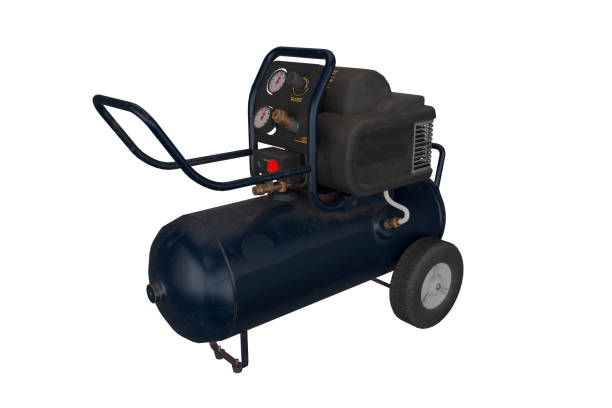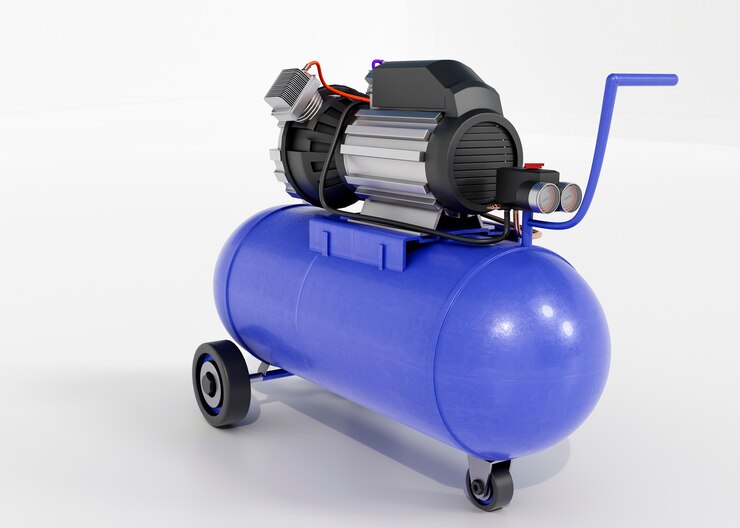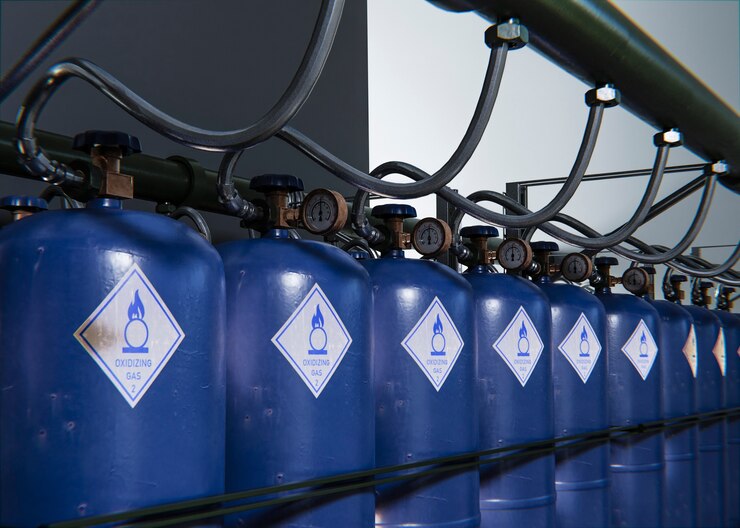Benefits of Using Industrial Compressor in Your Industry
The Powerhouse of Industry: A Comprehensive Guide to Industrial Compressor:
An unsung hero in many sectors, the industrial compressor silently powers everything from oil rigs to manufacturing lines. However, it might be intimidating for people who are not familiar with these devices to comprehend their kinds, uses, and features. This article is your one-stop resource for information about industrial compressors, enabling you to take advantage of their potential and make well-informed decisions.
Industrial Compressors: The Workhorses of Modern Industry:
These compressors are the hidden heroes of contemporary industry, quietly powering many industries. These mechanical wonders drive a wide range of instruments and procedures by compressing air (or other gases) to extremely high pressures. Oil and gas, construction, and manufacturing industries depend heavily on these compressors, which are regarded as the “fourth utility” after electricity, natural gas, and water.
- There are three primary types: centrifugal (great for high airflow applications), rotary screw (perfect for continuous operation), and reciprocating (durable for high-pressure duties). It’s important to take mobility, pressure rating, and airflow capacity into account while selecting the best compressor. The best performance and lifespan are ensured by routine maintenance, which includes filter replacements and oil checks (for models with oil injection).
- Innovations like as oil-free designs and variable speed drives are opening the door for more environmentally friendly and efficient compressors as companies embrace sustainability. Visit our thorough guide to learn more about these workhorses and how to select the ideal one for your needs.
Types of Industrial Compressors: Choosing the Right Tool for the Job:
The key to choosing the best compressor is being aware of the unique features that make each kind unique. Here’s a deeper look at each of the three primary groups, emphasizing their advantages and best uses:
- Reciprocating Compressors:
Reciprocal compressors work on the same principle as the pistons in an automobile engine. With each stroke, a piston that is moving inside a cylinder draws in air and compresses it. Reciprocating compressors are strong machines that perform well in difficult conditions and high-pressure applications. Due to their capacity to produce extremely high pressures, they are well-suited for jobs involving the operation of high-pressure cleaning apparatus or sandblasters. Because these compressors don’t need to run continuously to function at their best, they are ideal for applications that include a lot of on-and-off cycles.
- Rotary Screw Compressors:
Rotating screw compressors, which use intermeshing screws to constantly compress air, are a more silent and effective option. As air passes through the chamber, these two rotating screws gradually capture and compress it. Compared to reciprocating compressors, its constant operation and internal design result in lower energy consumption. Since there are no pistons, there is less noise, which makes them perfect for settings where noise is a concern. Designed for long durations of operation, rotary screw compressors are ideal for manufacturing lines or other applications needing continuous compressed air.
Industrial Centrifugal Compressors:
Centrifugal compressors are preferred in applications that require large air volumes at moderate pressure levels. They are perfect for applications like gas turbine starts and pneumatic conveying, which involves moving items through compressed air pipes. They are also excellent at delivering high quantities of compressed air. Centrifugal compressors are smaller than other types of compressors because of the volume of air they can provide. Compared to reciprocating or screw compressors, its more straightforward design frequently results in reduced maintenance requirements.
Beyond Air: Exploring the Applications of Industrial Compressors:
These compressors are the unseen powerhouses of a plethora of operations, and their uses go well beyond just air compression. These adaptable devices power a wide range of industrial processes in many different industries. Let’s examine a few of the unexpected ways that these compressors fuel contemporary industry:
- Manufacturing Marvels:
These compressors enable assembly lines to run smoothly. They supply the force behind pneumatic instruments such as sanders, wrenches, and drills, guaranteeing accurate and productive product assembly. These compressors work silently alongside manufacturers to produce anything from furniture to automobiles—the items we use daily.
- Construction Powerhouses:
Compressed air power is frequently the foundation of construction projects. Industrial compressors are essential for driving sandblasters for surface preparation, powering drills for foundation construction, and running jackhammers for demolition. They are the invisible force forming the environment we live in.
- Fueling the Oil and Gas Industry:
They are essential to the oil and gas industry’s operations, from transportation to discovery. They are employed in the refining process as well as for powering pneumatic equipment during pipeline maintenance and improving oil and gas recovery by pumping high-pressure air into wells.
- Food and Beverage Delights:
Upholding the strictest hygienic regulations is crucial for the food and beverage sector. Pneumatic conveying—the process of moving materials through pipes using compressed air—and bottling and packing both benefit from the clean, contaminant-free air supplied by oil-free industrial compressors. They guarantee the food and drinks we eat and drink are safe and of high quality.
Additional application:
- Chemical Processing Power:
They play a major role in the complicated world of chemical processing, performing a variety of functions. They help power pneumatic valves that regulate the flow of materials, transfer and agitate chemicals during reactions, and supply clean air for monitoring. The quiet maestros that create a plethora of chemical compounds are industrial compressors.
- Medical and Dental Care:
The power of compressed air is also beneficial to the healthcare industry. Dental instruments and other medical equipment can be powered by industrial compressors, many of which are oil-free types. They ensure effective patient care by helping medical facilities run smoothly.
These are but a handful of the many uses for these compressors. Because of their adaptability and capacity to produce pure, high-pressure air, they are vital parts of many different sectors and have a profound impact on the environment.
Maintaining Peak Performance: Essential Tips for Industrial Compressor Care:
Like any other demanding machinery, your industrial compressor needs regular maintenance to function well. The following are essential procedures to guarantee lifetime and peak performance:
- Focus on Filters:
The first line of defense against impurities getting into your compressor is an air filter and a separator. By replacing them regularly (as advised by the manufacturer), internal wear and tear is avoided, increasing efficiency.
- Oil Changes:
To properly lubricate and cool internal components, fresh oil is essential. It is essential to adhere to the manufacturer’s suggested oil change plan to preserve optimal performance and avoid expensive malfunctions.
- Cooling System Check:
The aftercooler and intercooler are essential for regulating the temperature of compressed air. To avoid overheating and lost efficiency, give these parts regular inspections and cleanings. As part of your normal maintenance, think about including a cleaning regimen.
- Safety first:
Pressure relief valves, which automatically release excess pressure in the event of a breakdown, are crucial safety components. Plan regular checks to make sure they are operating correctly and protecting your staff and equipment.

How to choose the right industrial compressor for your needs?
Many considerations are involved in choosing an industrial compressor, including:
- Airflow capacity:
CFM is the amount of air that is provided in a minute. Select a compressor whose airflow requirements match those of your application.
- Pressure Rating (PSI):
The highest pressure that the compressor can produce and make sure the pressure rating of the compressor is higher than what your application requires.
- Horsepower (HP):
The amount of power needed to run the compressor is measured in horsepower (HP). When choosing horse power, take into account elements such as motor size and duty cycle.
- Oil-free vs. oil-injected:
Oil-free compressors offer cleaner air for delicate applications, while oil-injected compressors offer increased durability and efficiency.
- Stationary vs. Portable:
Stationary compressors are made for continuous operation in a fixed place, whilst portable compressors provide flexibility for on-site application.
The Future of Industrial Compressors: Embracing Efficiency and Sustainability:
Manufacturers are creating innovative solutions to lower their environmental impact and increase compressor efficiency as industries work toward sustainability. Among these developments are:
- Variable Speed Drives (VSDs):
These drastically cut energy use by electronically adjusting motor speed to match demand.
- Oil-free compressor designs:
These are perfect for applications that are sensitive to environmental factors since they eliminate the possibility of contamination and leakage.
- Advanced monitoring systems:
Proactive maintenance and compressor performance improvement are made possible by real-time monitoring.
Conclusion:
We at LEIYAO Compressor are aware of how important industrial compressor is to your business’s operations. For this reason, we provide an extensive selection of dependable, high-quality compressors that may be used in a variety of settings. This company boasts comprehensive capabilities in technical design, performance analysis, machining, welding, assembly, and testing. You will get the most out of your compressed air investment because of our dedication to innovation, energy efficiency, and first-rate customer service. Experience the impact that dependable compressed air solutions can make by partnering with us right now.



